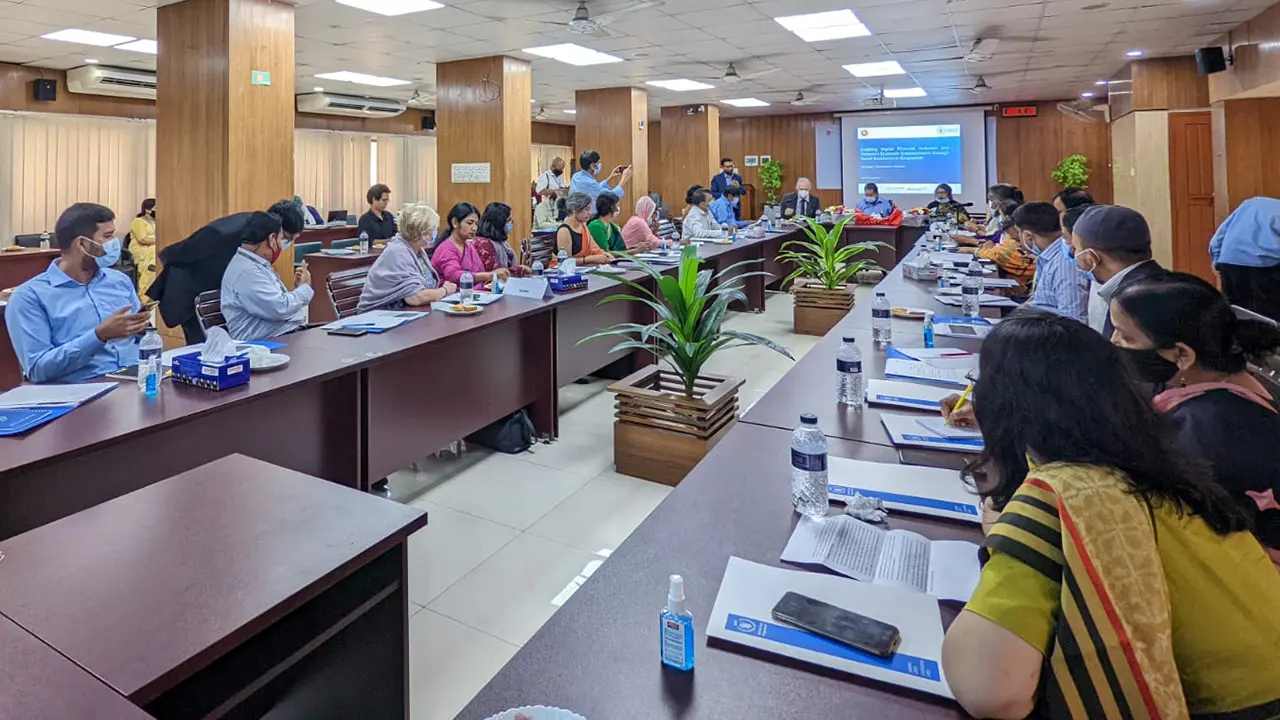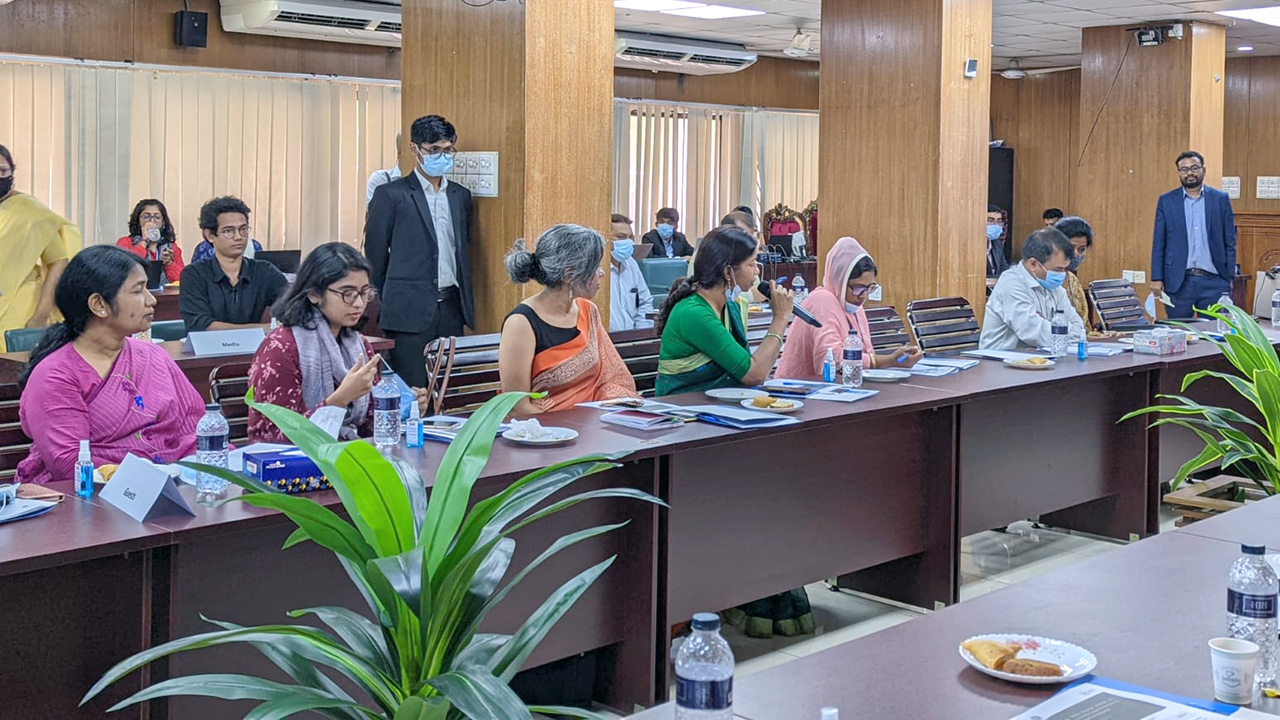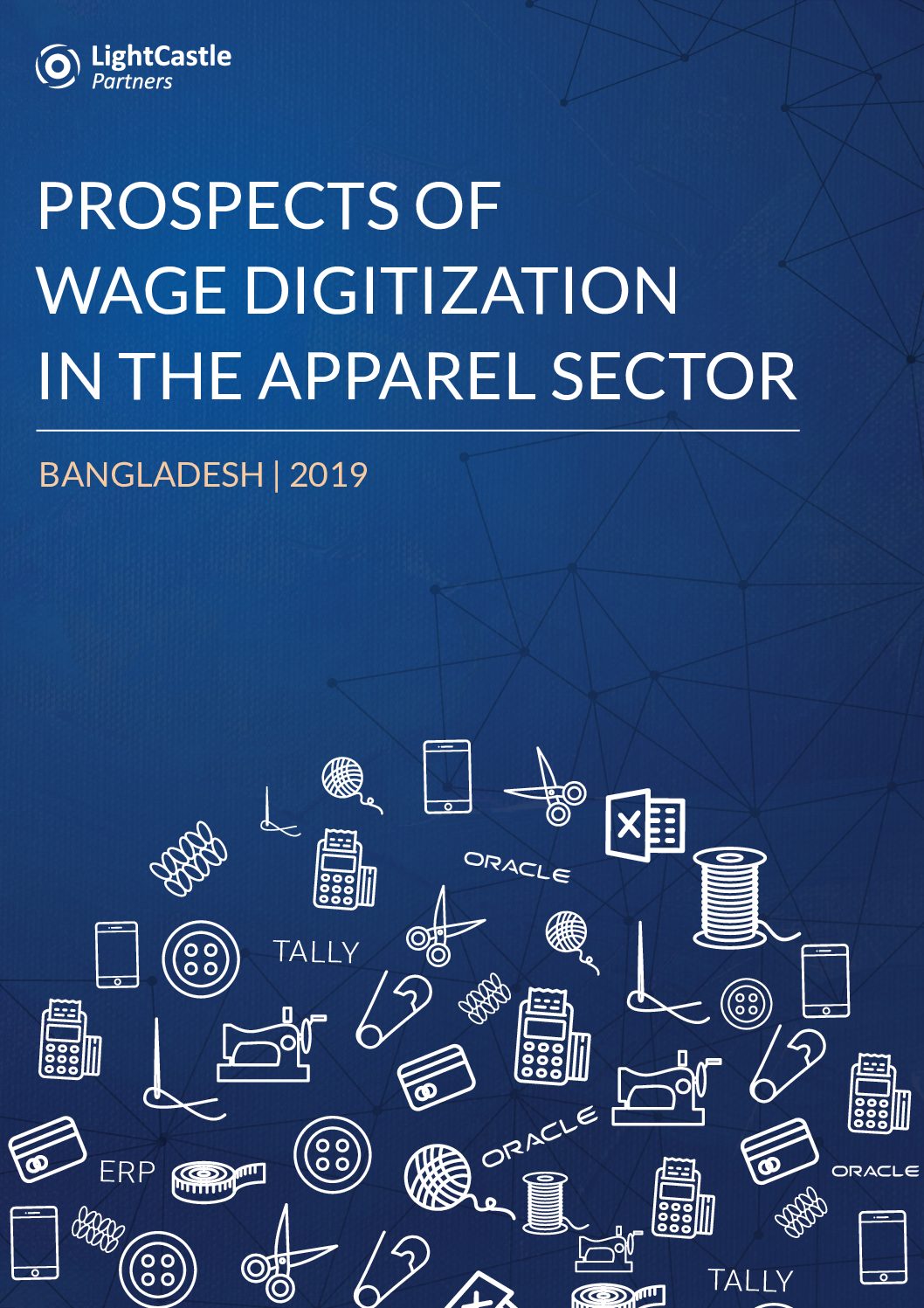GET IN TOUCH
- Please wait...

On the 3rd of August 2022, LightCastle Partners and James P Grant School of Public Health, BRAC University facilitated a Strategic Consultation Workshop jointly hosted by the Department of Women Affairs (DWA) and the World Food Programme (WFP). The workshop showcased the possible roadmap and recommendations for designing the Vulnerable Women Benefit Program integrated with digital financial inclusion interventions, which will provide support to 1 million beneficiaries from January 2023.
Funded by the Bill and Melinda Gates Foundation, and in association with the Ministry of Women and Children Affairs (MoWCA), WFP’s year-long project aimed to understand the relationship between the rise of digital financial services/products in Bangladesh and women’s economic empowerment for vulnerable women.
The consortium, led by LightCastle Partners, conducted the study in two phases. In the first phase, the consortium partners comprehended the existing state of digital financial inclusion, vulnerable women group’s interest, and their ability to leverage DFS, including the potential challenges and opportunities. Based on the recommendations from Phase I, the second phase of the project will focus on implementing the findings from the first phase. The overall aim of our consortium will be to strengthen women’s economic empowerment through digital financial products/services.
Additionally, for this study, the consortium partners conducted Ethnographic case studies, Key Informant Interviews (KIIs), and Focus Group Discussions (FGDs), to investigate various stakeholders’ perspectives of the digital financial ecosystem. A wide range of stakeholders was interviewed, including Financial Service Providers, NGOs, Mobile Network Operators (MNOs), and policymakers.

At the event, the respected Secretary of the Ministry of Women & Children Affairs (MoWCA) was present as the Chief Guest and the representative from the Office of the Country Director, WFP and the Director General of DWA were present as the Guest of Honor and Session Chair.
Demonstration of the recommendations finalized from research efforts and a validation workshop (the event took place on the 25th of July with 15+ stakeholder organizations) was a key segment of the Strategic Consultation Session. The consortium partners took an integrated approach and suggested three key recommendations.
The first recommendation emphasized awareness and sensitization of beneficiaries and their family members to promote women’s participation in economic activities and decision-making. This will help ensure the engagement of women in financial inclusion activities and will help empower women against social barriers such as restricted mobility, cultural norms, low control over family finances, etc. Potential partners to facilitate this intervention could be NGOs and Microfinance Institutions such as BRAC and Swisscontact. Side by side, Financial Institutions, and MFS service providers can also help in designing financial literacy curricula for the beneficiaries.
The second recommendation stressed building the digital financial capacity through an Integrated Support System, which will help equip vulnerable women with the necessary knowledge and technical assistance to access and utilize Digital Financial Services. The intervention focused on teachable moments around Digital Financial Services (DFS) and Social Safety Allowance Programmes (SSNPs), which help strengthen the capacity of vulnerable women at grass root levels. Through advocacy workshops and training of the trainers (Agents) on how to handle vulnerable women queries and demonstrate solutions/steps. Potential partners suggested for this intervention are Mobile Network Operators, Financial Institutions, MFS providers, and others.
The final recommendation focused on the design of digital financial products with the needs of vulnerable women in mind in order to facilitate access, adoption, and repeat usage since vulnerable women groups have low digital literacy and require specialized products thus, there is low organic adoption of financial services. To address these challenges and facilitate the intervention potential stakeholders among others could be government stakeholders, Financial Institutions, and Mobile Financial Services.
Representatives from different government ministries: Ministry of Disaster Management and Relief (MoDMR), Cabinet Division, Economic Relations Divisions, Microcredit Regulatory Authority (MRA), Bangladesh Bank, private sector partners: MFS, Banks, technology organizations, NGOs, and donor organizations also graced the session.
Ms. Monowara Ishrat, Director, Department of Women Affairs welcomed all the invited guests and talked about the key objectives of our national development strategy and policies and how it is designed to promote women’s economic empowerment by making them self-dependent economically and help them escape from poverty. She encouraged the respected guests to share their valuable opinion and comments on the key recommendations which will further enhance the interventions.
Furthermore, Ms. Masing Newar, Senior Programme Policy Officer (Safety Reform), World Food Programme shed light on the Vulnerable Women Benefit (VWB) Programme and how WFP is coordinating with the Ministry of Women and Children Affairs and Department of Women Affairs for a long time. They have been particularly providing technical assistance for two of the flagship safety net programs: one is the Vulnerable Women benefit (VWB) program which was known as VGD in the past, and the other is the Mother and Child Benefit Programme.
Mr. Md Hasanuzzaman Kallol, secretary of the Ministry of Women and Children Affairs, spoke at the event and stated, “To raise our GDP, we want to encourage more women’s participation in economic activities. For them, the standard swing is insufficient. Hence, to increase their standard of living, we must engage women groups in innovative sectors such as agriculture and food processing.”
Representatives from WFP praised the Government of Bangladesh’s efforts and recent achievements and highlighted the actions they have taken and are currently ongoing. They also mentioned the timeliness of such design-defining studies and urged the different partners and stakeholders to come up with solutions to take the vulnerable women one step further in their journey to financial inclusion by breaking away from restrictive social norms, and building operational capabilities and providing innovative products incorporated with income generating activities.
Side by side, representatives from the Cabinet division talked about the government’s initiatives and the division’s support for innovation and transparency. Representatives from MRA also encouraged the Microfinance Institutions to design programs so that the burden of transactions doesn’t fall on the shoulders of vulnerable women. MRA has also expressed to extend their support on further strengthening the key recommendations with relevant data and information which will help enable vulnerable women groups to have better access to digital financial services.
Bangladesh Bank mentioned the QR code-based transaction process at the ‘Point of Sales’ initiative which will make digital transactions easier for vulnerable women groups. BKMEA representative also voiced their solidarity with women empowerment and financial inclusion among their workers.
 |
To learn more about the Prospects of Wage Digitization in the Apparel Sector in Bangladesh
|
Stakeholders from private sectors such as bKash, Bank Asia, and many other financial institutions applauded the study findings and expressed to work in line for the marginalized women groups.
Finally, Ms. Farida Pervin, DG of DWA concluded by briefly shedding light on some findings, future plans, and steps for DWA and urging everyone to come together to live up to the challenge of vulnerable women’s empowerment.
The consultation workshop has been instrumental in kickstarting a dialogue among the government bodies, regulatory authorities, and private organizations. The various suggestions and cooperative potential commitments among these entities would ultimately help in implementing the interventions which will be taking effect from the beginning of 2023.
Our experts can help you solve your unique challenges